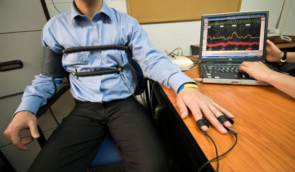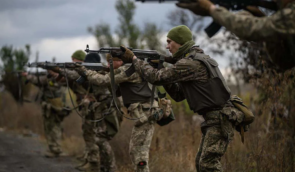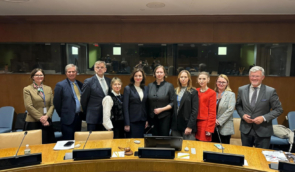Participants of Crimea Global discussed the colonisation of Crimea and other former “imperial treasures”, as well as approaches to countering these narratives
As part of the Third International Conference “Crimea Global. Understanding Ukraine through the South”, the sixth panel discussion, “Are We Getting Rid of Colonial Perceptions? Case of Crimea and Other Former ‘Imperial Treasures'” was held, dedicated to a critical reflection on imperial narratives.
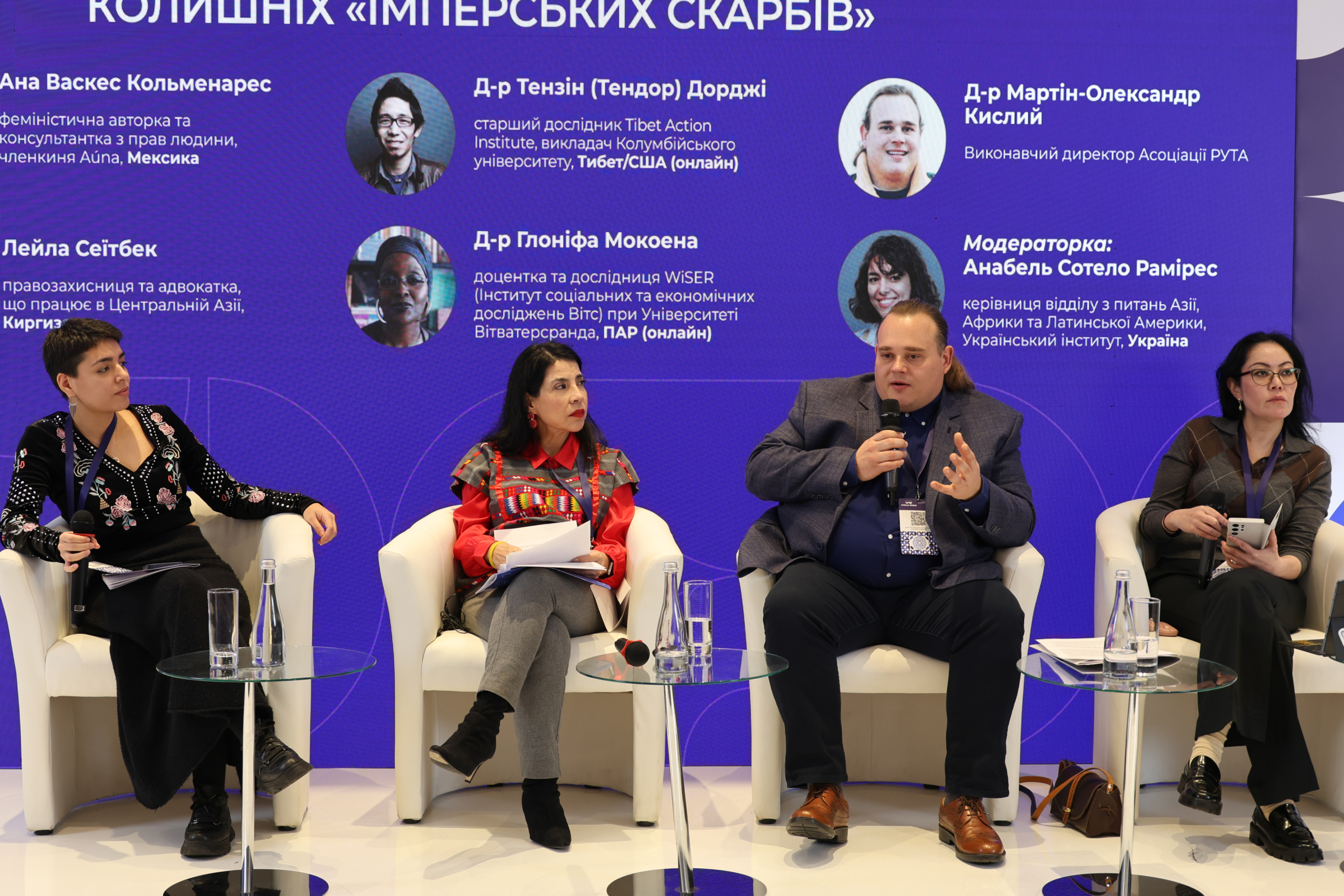
The panel discussion was joined by feminist author and human rights consultant, member of Aúna Ana Vázquez Colmenares, Senior Researcher at the Tibet Action Institute, Columbia University lecturer Dr. Tenzin (Tendor) Dorjee, Executive Director of the RUTA Association Dr. Martin-Oleksandr Kyslyi, Associate Professor and Researcher at WiSER (Wits Institute for Social and Economic Research) at the University of the Witwatersrand, Dr. Hlonipha Mokoena, and human rights defender and lawyer working in Central Asia, Leila Seiitbek.
The discussion was moderated by the Head of the Asia, Africa and Latin America Department at the Ukrainian Institute, Anabell Sotelo Ramires.
Participants discussed the persistence of Crimea’s media image, which in many countries is still presented through Orientalist clichés — as a romanticised “pearl” of the Russian Empire, shrouded in images of summer imperial residences and scenes from Russian literature. This exoticised image obscures the truth about the systematic crimes committed by the Russian regimes against the indigenous peoples of the peninsula, primarily the Crimean Tatars.
Dr. Martin-Oleksandr Kyslyi emphasised that decolonisation of Crimean history is impossible without restoring its own traditions and eradicating imposed colonial practices. He stressed that although the coloniser is always responsible for oppression, the important question is who today takes on the burden of decolonisation and works with its consequences. In his opinion, Ukrainian researchers play a key role in shaping a truthful narrative, while citizens play a key role in choosing language, views and ways of expression, so the responsibility lies with everyone.
“Restoring the agency of colonised peoples, paying attention to their voices, histories and heritage is the direct path to decolonisation,” he concluded.
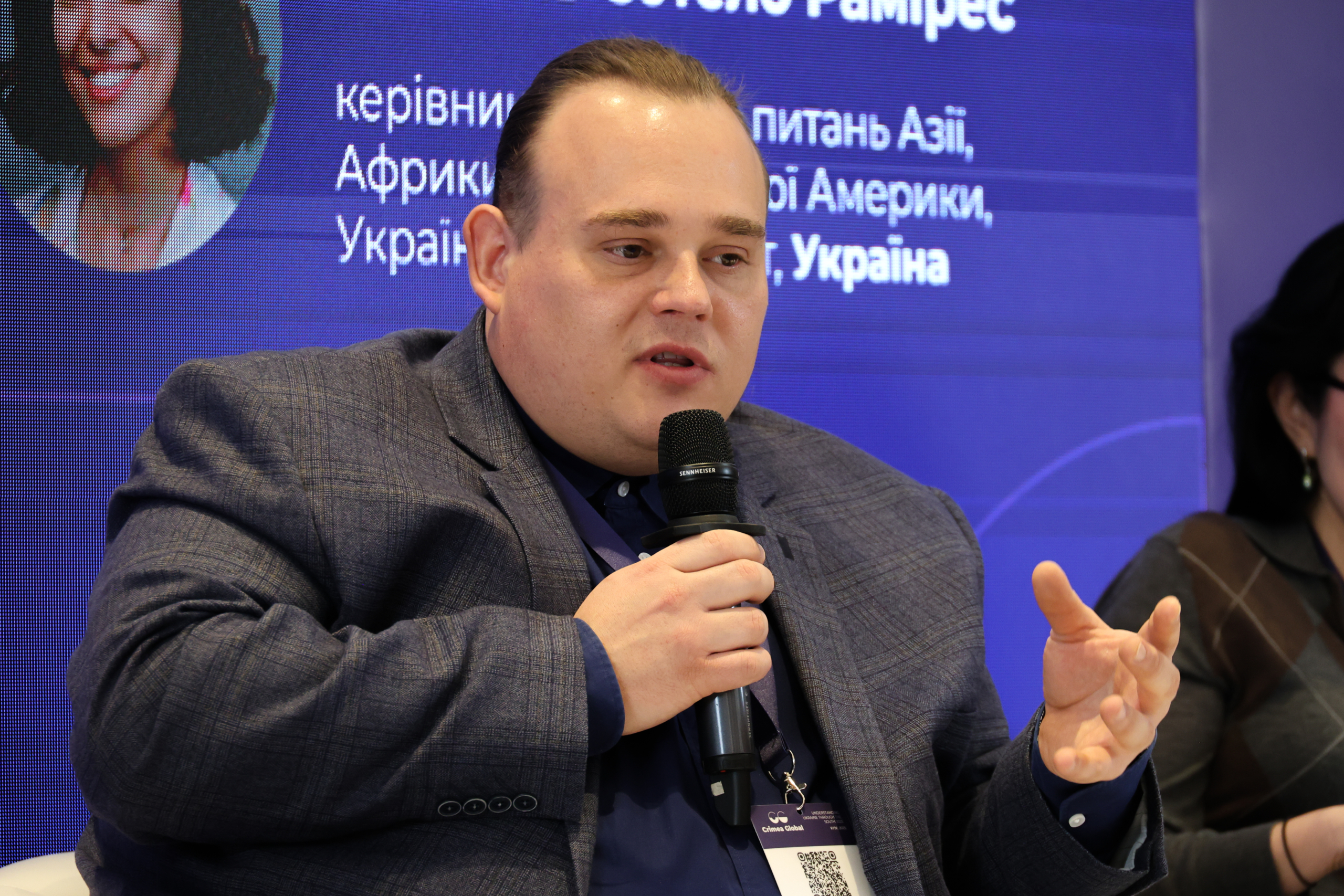 Photo: Dr. Martin-Oleksandr Kyslyi
Photo: Dr. Martin-Oleksandr KyslyiSuch colonial myths extend far beyond Crimea. Regions of Central Asia, Tibet, much of Africa and Latin America are still struggling with perceptions shaped by old imperial centres — perceptions that continue to influence both political decisions and global cultural perspectives.
Leila Seiitbek cited the example of Central Asia, where for decades the narrative was spread that factories, schools and libraries were supposedly “gifted” by Russia. This rhetoric concealed the destruction of civilisations that existed in these lands before Russian expansion and the appropriation of their resources by the empire and later the USSR. The impact on the language and identity of Kyrgyzstan was particularly devastating: “I am Kyrgyz, grew up speaking Russian. I only began to learn my native language as an adult. Multiple changes to the alphabet severed our people from their historical memory, and the Kyrgyz language and traditions were banned in public spaces,” she said.
She added that colonial myths about “modernisation” supposedly saving local peoples from “backwardness” continue to be reproduced even by representatives of the Russian opposition.
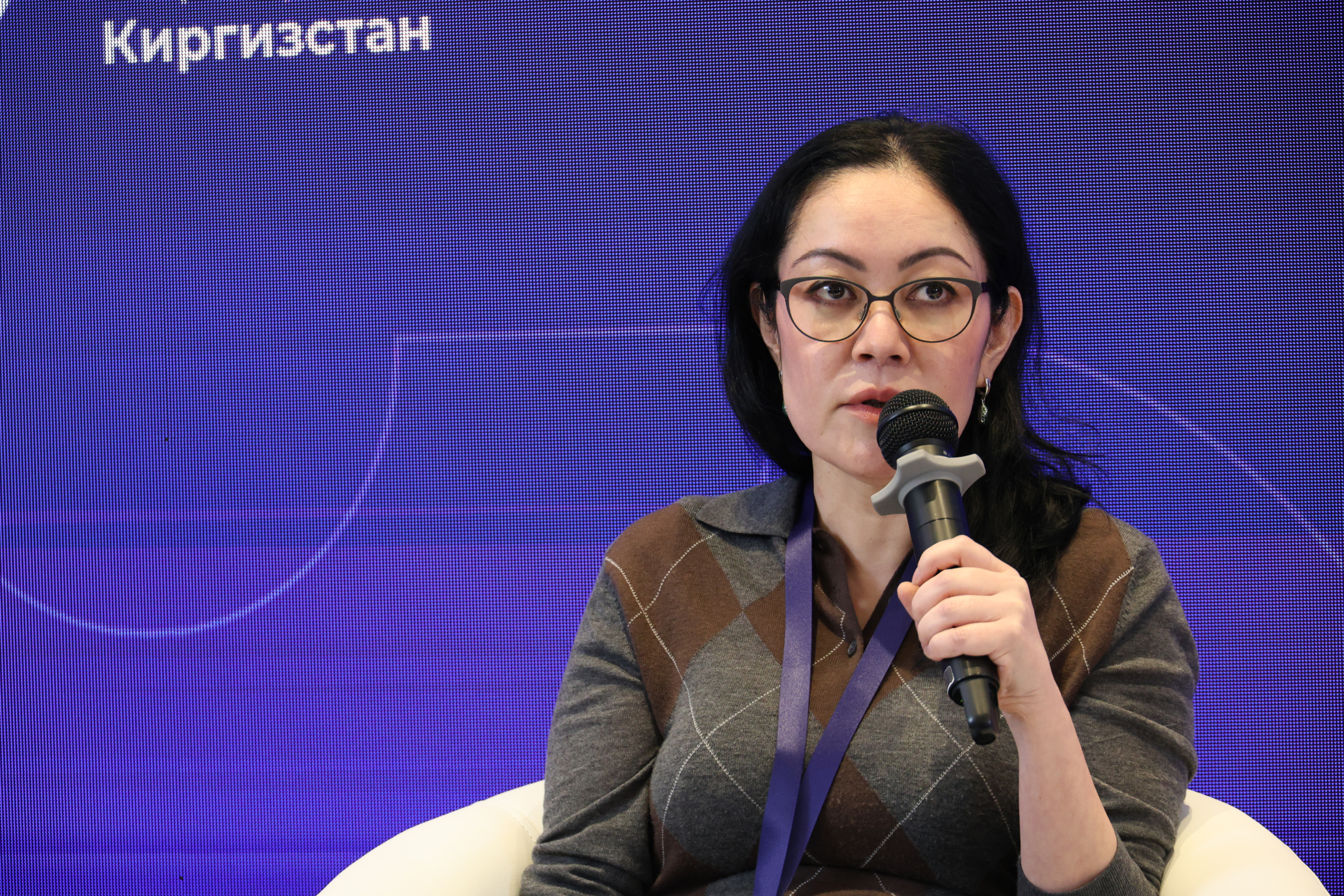 Photo: Leila Seiitbek
Photo: Leila SeiitbekDr. Hlonipha Mokoena pointed out that Africa is often overlooked in discussions about decolonisation. The false belief that the best ideas and cultural products supposedly come from the West still persists, and this requires a rethinking of the global model of the world. She emphasised that art is a tool for regaining subjectivity and political voice, and therefore an important component of decolonisation processes.
Dr. Tenzin (Tendor) Dorjee emphasised the need to distinguish between imperialism and nationalism and to depoliticise approaches to decolonisation. He is convinced that when people are determined to self-determination, there is simply no room for cultural oppression. One of the main mechanisms of colonisation, he said, is the marginalisation of minority languages — their suppression deprives communities of access to their own memory, traditions and political expression.
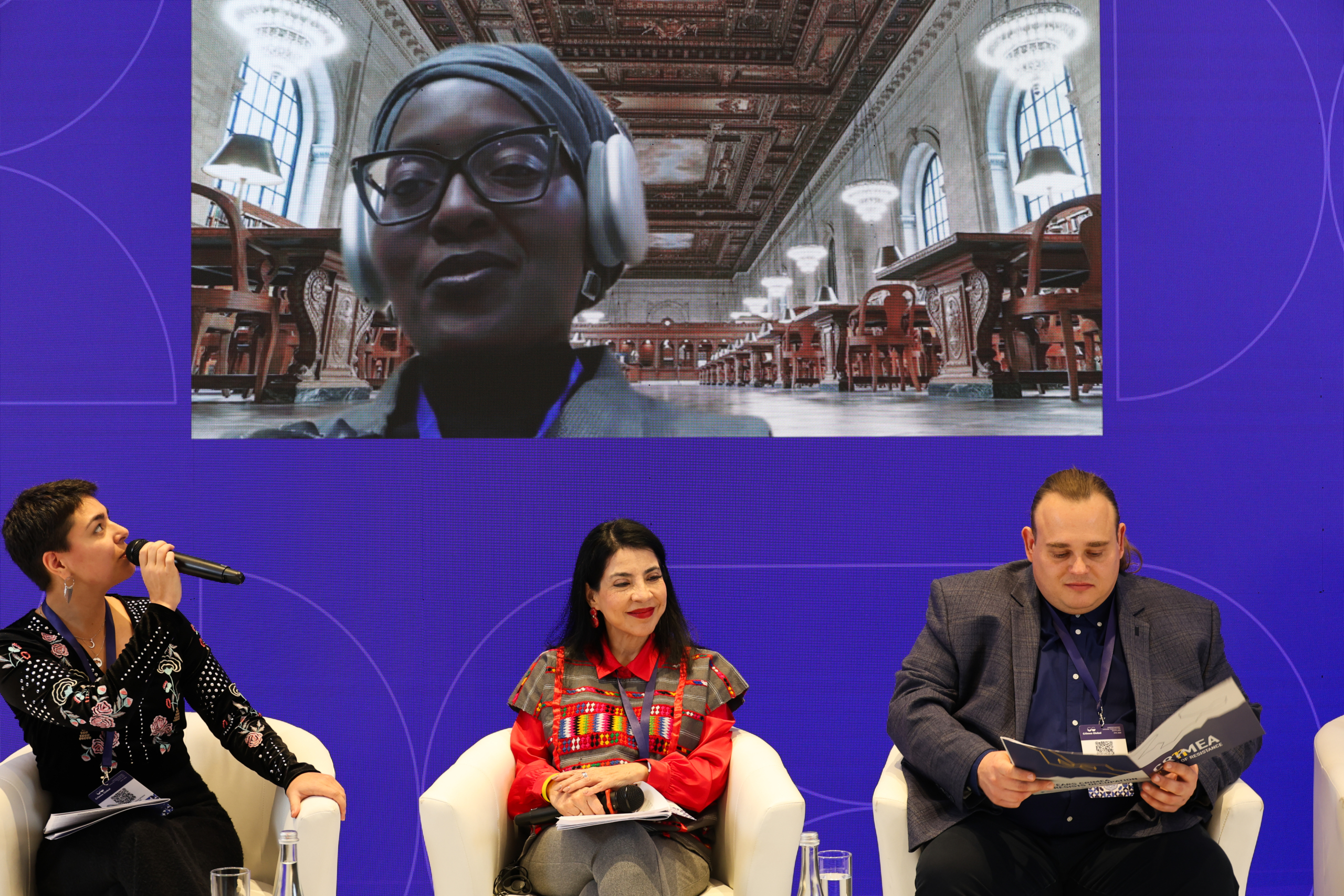
In conclusion, Ana Vázquez Colmenares spoke about the ongoing linguicide and ethnocide on the American continent. Mexico has 68 official languages, but Spanish has become a tool for suppressing them and a form of structural violence — 48 languages have already disappeared.
“Spanish is being imposed as the language of civilisation, and the identity of indigenous peoples is being erased — people are being forced to renounce themselves,” she noted.
Colmenares also raised the issue of decolonising aesthetics, questioning, “What is beauty and who benefits from this definition?” Indigenous cultural adornments only become “beautiful” when they are appropriated by European designers for international fashion, which is a form of cultural appropriation.
“In Ukraine, I saw how the empire also strikes at places of beauty — at monuments in Crimea and throughout Ukraine. It is important to protect this beauty, which the colonisers are trying to destroy, to silence its creators, to rename or appropriate it,” she concluded.
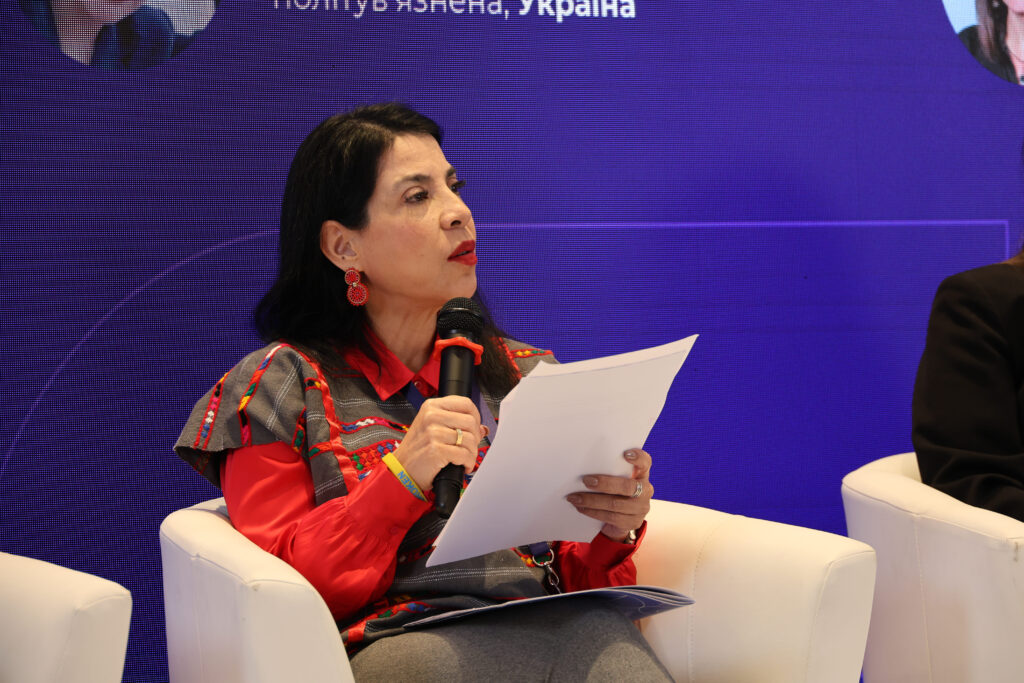 Photo: Ana Vázquez Colmenares
Photo: Ana Vázquez ColmenaresAs a reminder, on 17 November, the Third International Conference “Crimea Global” opened in Kyiv. The event was attended by over 200 participants from around the world, including leading experts, academics, journalists, human rights defenders, opinion leaders and representatives of international organisations.
On this day, three panel discussions were also held on the sidelines of the conference, devoted to Ukraine, Crimea and the global dimension, the use of new technologies, in particular drones, by authoritarian regimes against civilians, and the problems of modern journalism during the war between Russia and Ukraine.
In the evening, the SENS bookshop hosted a special commemorative art evening, “Memoria Orbis: Memory Holds the World”. The event honoured Ukrainian artists whose lives were taken by Russian aggression, yet whose creative legacy continues to sustain and unite our shared world.
On 14 November, conference participants visited Lviv, on 15 November, they continued their tour of Ukraine in Kharkiv, and on 16 November, guests of the Crimea Global conference arrived in Kyiv, where a closed roundtable event “Ukraine’s Resilience in War: Challenges, Responses, and International Support” was held at the Representative Office / Crimean Platform.
Organisers: Mission of the President of Ukraine in the Autonomous Republic of Crimea / Office of the Crimea Platform, Human Rights Centre ZMINA, Media Initiative for Human Rights.
Partners: Ukrainian Institute, PEN Ukraine, Truth Hounds, Media Centre Ukraine, Transatlantic Dialogue Centre.
The event was organised with the support of: Partnership Fund for a Resilient Ukraine, International Renaissance Foundation, Prague Civil Society Center, Askold and Dir Fund, administered by ISAR Ednannia and UN Women.
Photo credit: Mission of the President of Ukraine in the Autonomous Republic of Crimea
If you have found a spelling error, please, notify us by selecting that text and pressing Ctrl+Enter.



